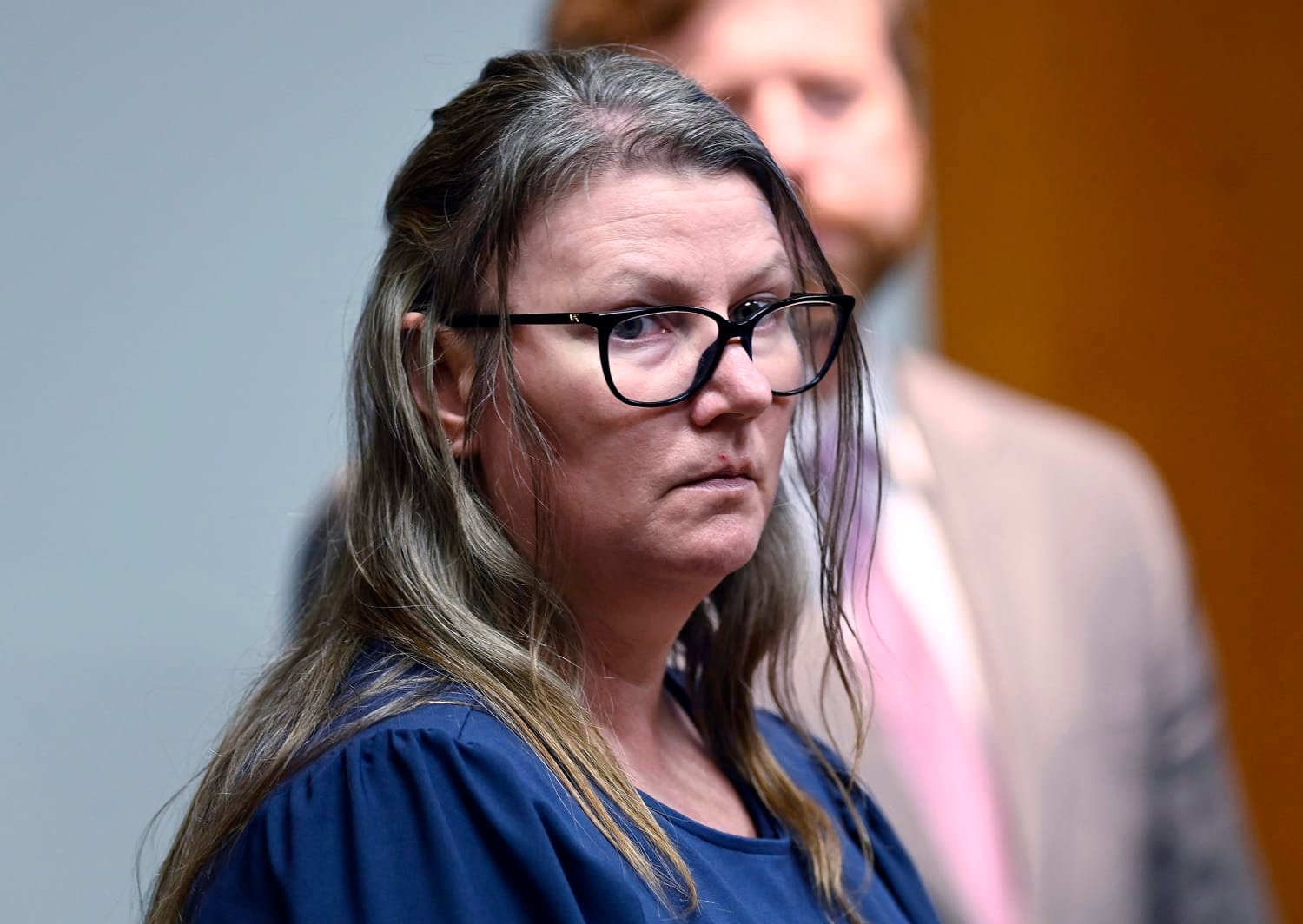Jennifer Crumbley, the mother of a convicted mass shooter, now awaits a jury’s decision in her own trial after taking the stand in a case that poses significant questions about parental responsibility. The trial raises concerns about a parent’s duty to prevent harm when a child has access to firearms.
Facing charges of involuntary manslaughter, Jennifer Crumbley is the first parent in the United States to be accused in connection with a mass school shooting. Her son, Ethan Crumbley, carried out the tragic shooting, taking the lives of four students at his Michigan high school in November 2021.
Prosecutors argue that Jennifer Crumbley was aware of her son’s severe mental health issues, including on the day of the shooting, yet failed to intervene. The Crumbleys are further accused of purchasing the firearm used in the attack instead of seeking professional help for their troubled son. Subsequently, they allegedly fled after the incident.
Legal experts emphasize the potential impact of this case on societal perceptions of parental accountability regarding children accessing firearms and causing harm. If convicted, it could set a precedent influencing how future cases involving parents and gun violence are handled.
Adam Winkler from the UCLA School of Law notes the groundbreaking nature of the case, suggesting that it might encourage parents to exercise greater caution when providing their children access to firearms. The case underscores the need for responsible gun ownership and raises questions about whether parents should face legal consequences when their children misuse firearms.
Ethan Crumbley, who was 15 at the time of the shooting, received a sentence of life without parole plus an additional 24 years in December 2021. Now, the focus shifts to Jennifer Crumbley’s trial and the broader implications it could have for parental accountability in cases involving gun violence.
During her testimony, Jennifer Crumbley presented herself as an involved and loving mother, emphasizing her role as a protector of her son. Prosecutors questioned her about inconsistencies in her narrative, pointing out missed opportunities to intervene and potentially prevent the tragic events.
In an unusual move, Jennifer Crumbley took the stand in her defense, a decision that legal experts describe as the last act of a desperate defense. While typically, defendants do not testify in criminal trials, the defense may have hoped her testimony would gain sympathy from the jurors.
The trial has generated significant attention due to its unique circumstances, including the legal theory of holding parents responsible for their children’s violent actions. The outcome could have far-reaching implications, influencing how prosecutors handle cases involving parents and gun-related tragedies.
Both legal experts and the local community are closely watching the trial. The extreme factors involved, such as clear signs of the shooter’s mental distress and the parents’ alleged neglect, make this case exceptional. The Crumbley case prompts a broader conversation about balancing parental rights, gun ownership responsibilities, and the prevention of tragic events like school shootings.
As the jury begins deliberations, the legal community anticipates the potential impact of the trial’s outcome on future cases. Some experts believe it could serve as a landmark precedent, encouraging prosecutors to bring charges against parents in similar situations. Regardless of the verdict, the case underscores the importance of securing firearms responsibly and the potential legal consequences parents may face for their children’s actions.
In conclusion, the Crumbley trial raises critical questions about parental accountability, responsible gun ownership, and the legal consequences parents may face when their children commit acts of violence with firearms. The unique circumstances of the case make it a potential turning point in shaping how society views and addresses such tragic incidents.
